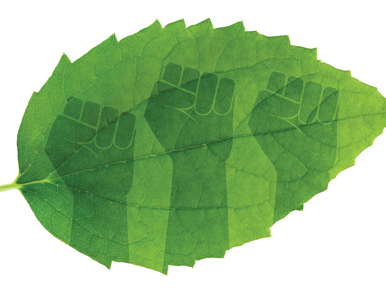
Ramón Cruz’s historic election as the first Latino president of the Sierra Club came at a historic moment in American history—just months into a global pandemic that forced people indoors and days before the murder of George Floyd compelled them to gather outside in protest.
Inspired to help a more just environmental movement take root, Cruz, SIS/BA ’98, suggested that the Sierra Club—the oldest and largest organization of its kind in the US—had an obligation to reflect on its past to help create a more equitable future.
The invitation-only hiking club established in 1892 by naturalist and conservationist John Muir “would have excluded my father and grandfather [both of whom are Black],” Cruz said on April 4, during the School of International Service’s annual Nancy Weiser Ignatius Lecture on the Environment. “It is debatable whether Muir himself was a racist or just a product of the time, but certainly among Sierra Club’s founding members there were eugenicists and people that had owned other people.
“Muir founded the rocket ship of the conservation movement,” Cruz continued. “But the summer of reckoning in 2020 was a time for introspection and analysis to [determine] where we had caused harm, how we were doing as an institution,” and how to meet the moment with humility and grace. “I have a commitment to continue the [organization’s] legacy—but also to [build] a movement that’s more inclusive and diverse.”
When some of the Sierra Club’s nearly 4 million members pushed back on Cruz’s belief that environmental, racial, and social justice are inextricably linked, urging him to “stay in his lane,” the native Puerto Rican responded that he would simply widen the road.
“Sierra Club needs to expand the lane to include voting rights, labor rights, reproductive rights, housing rights—all of which are related to environmental rights,” he said. “The same people whose votes are being suppressed are the same people who are most vulnerable to the climate crisis.
“Racism and White supremacy are killing the planet,” he continued. “We accept or condone fracking the hell out of a mountain or polluting a watershed in the name of progress and economic development. We’re OK with sacrificing those places, and if those places have people, they become disposable. You cannot conceive of a disposable people unless you have an ideology based on supremacy and racism.”
Cruz, who had just returned from a six-week, 15-state tour with Ben Jealous, Sierra Club’s new executive director and the former president and CEO of the NAACP, also stressed the importance of “building a movement that’s bigger than one [political] party.”
“In conversations, Ben would often quote Dr. Martin Luther King Jr. telling his lieutenants: ‘If you are too comfortable in your collation, then your coalition is too small.’ The only way we can meet these challenges is to reach out to people that we may not always agree with and to create those uncomfortable coalitions.”
During the hourlong lecture—named in honor of Ignatius, SIS/MA ’69, who championed environmental causes in the 1970s, long before they were mainstream—Cruz also reflected on his time at SIS.
“This is where I decided to become an environmentalist. I had long hair and I thought, ‘I’ll do all the sexy stuff you do as an environmentalist.’ I thought I was going to be Jane Goodall in the jungle,” he said with a laugh.
Instead, he landed a job with the Environmental Defense Fund in 2002, working on solid waste management in New York City at the height of the Carrie Bradshaw craze. “We called it ‘Trash and the City,’” he said with a smile. “It ended up being an amazing experience that launched my career.”